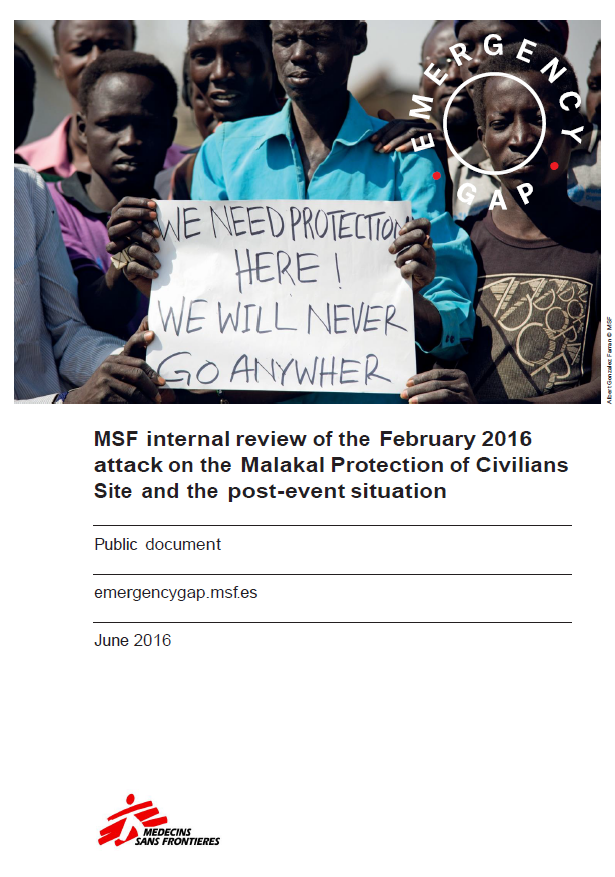
MSF internal review of the February 2016 attack on the Malakal Protection of Civilians Site and the post-event situation
Public document
The report exposes a glaring failure on behalf of the UN Mission in South Sudan (UNMISS) to protect the civilians residing in the PoC site. By not ensuring that adequate preventive measures were taken, failing to act to stop the violence in a timely manner and actively blocking the IDPs from reaching safety during a large part of the emergency, UNMISS effectively failed to protect the civilians it is mandated by the UN Security Council to protect. The rigid structure of the UN integrated mission within the PoC site prevented an efficient emergency response, resulting in a short yet acute emergency gap during the peak of the incident.
MSF took the lead in the emergency response and was able to act when many others could not. It treated many patients and provided refuge for the IDPs in its hospital. The team, and most notably the national staff, showed a dedicated commitment to the emergency response. The need for better emergency preparedness and more efficient and dignified management of dead bodies are among the lessons learned by MSF from the incident.
Due to the volatile context in South Sudan and frequent attacks on civilians, people will most likely continue to seek refuge in the PoC sites for the coming months and years. However, staying inside the PoC has not guaranteed freedom from violence and the living conditions of IDPs are still appalling four months on from the February attack. PoCs continue to be the only partially efficient, albeit uncomfortable, solution for the dire protection needs of the population. As long as there is no better or safer alternative, they cannot be dismantled and identified gaps in protection and assistance must be addressed.

 MSF internal review of the Malakal PoC attack
MSF internal review of the Malakal PoC attack